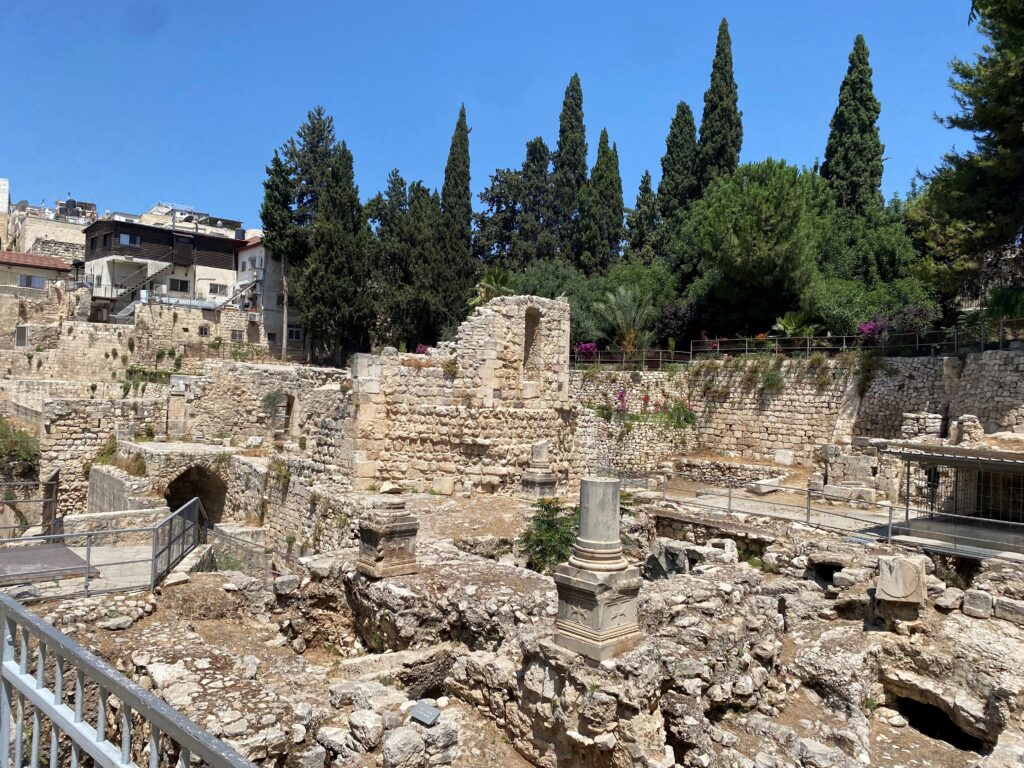In Jerusalem there is a pool with five porches called Bethesda near the sheep gate. Inside these porches lay many sick people… A man was there who had been sick for thirty-eight years… Jesus said to him, ‘Would you like to be healed?’ The sick man said, ‘Sir, I have no one to put me in the pool when the water is moving. While I am coming, another one gets in first.’ Jesus said to him, ‘Get up! Pick up your bed and walk.’ At once the man was healed and picked up his bed and walked. This happened on the Day of Rest (John 5:2-9, abridged, NLV).
On my second day in Jerusalem, our study group visited the pool of Bethesda. Unlike the other holy sites, where it’s a case of ‘we’re pretty sure this is the spot where Jesus did X, so we’ve built a church here, but it could also be 50 m over there’, this was the actual place where Jesus healed the man by the pool. Sadly, the pool and porches are now a ruin, but we were able to explore the site and climb down into the empty Roman water cistern.
I’ve often wondered why Jesus chose to heal just this one man and then quickly disappear into the crowd, when he could have easily healed everyone, transforming not just one hopeless situation but many. This story only appears in John’s gospel, which suggests that it’s been selected to tell the reader something more about who Jesus was, beyond a healer. A bit of digging around in a Bible commentary gave me some clues. Many people at the pool of Bethesda believed that it was the churning of the water or the pagan spirits in natural springs that could possibly heal them. Jesus performed a miracle here to show the power of God over the traditions of the area, including the Jewish rules around what constitutes ‘work’ on the sabbath. As you read on in the chapter, it’s apparent that the Jewish leaders totally miss the point of this miraculous healing and shift their focus to plotting to kill Jesus, as he is challenging their assumptions of who God is and how God works. I wondered what wrong assumptions about God I have absorbed and how my thinking might need to change. Sadly, we don’t hear much more about the man who was healed, except that Jesus finds him later in the temple, so we have no measure of the impact of this healing on his local community.
Later that week, I heard a present-day story of healing that links to the pool of Bethesda. Our group had taken a tram trip to the Shu’fat neighbourhood in east Jerusalem to visit the Domari Community Centre for Gypsies. Whilst we were served a middle eastern lunch, the founder, Amoun Sleem, a Gypsy who has lived in the community her entire life, shared her story. The Domari people face discrimination on all sides: they are considered Arab by the Jews, but not classed as Arab by the Arabs. She grew up living around Bethesda, raised by her father after her mother died when she was young. She dropped out of school after facing daily racial discrimination and bullying from both teachers and students. Her only option of making some money was to sell postcards to tourists. She didn’t particularly enjoy this and so would hang around St Anne’s Church, located within the grounds of Bethesda, administered by the Catholic order, the ‘White Fathers’. One of the priests befriended Amoun, creating cleaning jobs for her, so she could earn money in a different manner. Over time he told her about someone who did love the Domari people… Jesus, a friend to the poor and those who face discrimination. This was a healing and transformational moment, resulting in Amoun returning to school after a three-year break, working hard to learn to read and write, knowing that this would unlock future opportunities.
In 1999, she started the Domari Society of Gypsies, with a focus on empowering women and teaching children to read, whilst preserving the unique cultural heritage of the Domari people. Initially, the men in her community were against her enterprise, as she was challenging their assumptions of the role of women. However, she persisted and in 2005 opened the community centre that now provides after-school tutoring, job skills training, literacy courses, humanitarian aid and encourages women to have economic independence through the making and selling of traditional Gypsy handicrafts, including embroidery, jewellery, pottery and handbags. As I selected some earrings to take home as gifts, I met Amoun’s niece who is the first Domari to have been educated through the centre and the first in her community to complete a law degree. She plans to use her skills to help her community.
As we left the centre, I reflected on the strength of character required to be such a strong-minded woman, in a male-dominated culture, determined to make a difference for the poorest of the poor, whilst facing personal discrimination and opposition from both outside and within your own community. What was the source of this strength? It came from a healing encounter with Jesus at the pool of Bethesda, that has had a ripple effect on an entire community.
I wonder…
- Who are the people that are most discriminated against in your community?
- How can your Messy Church make space to demonstrate the core value of hospitality?
- Who needs to hear about the healing love of Jesus?
- If you want to find out more about Amoun’s work, check out domarisociety.com.
Aike Kennett-Brown
BRF Messy Church ministry lead
Aike visited Jerusalem in June 2023.
You may also like
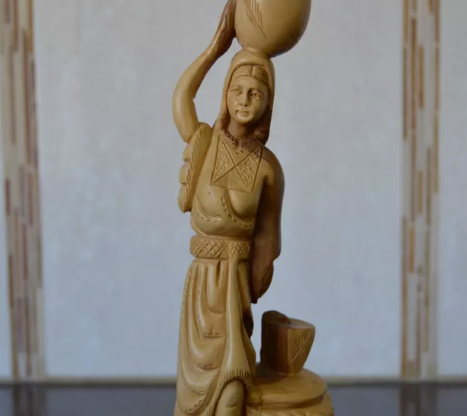
Woman at the Well
3rd Nov 2024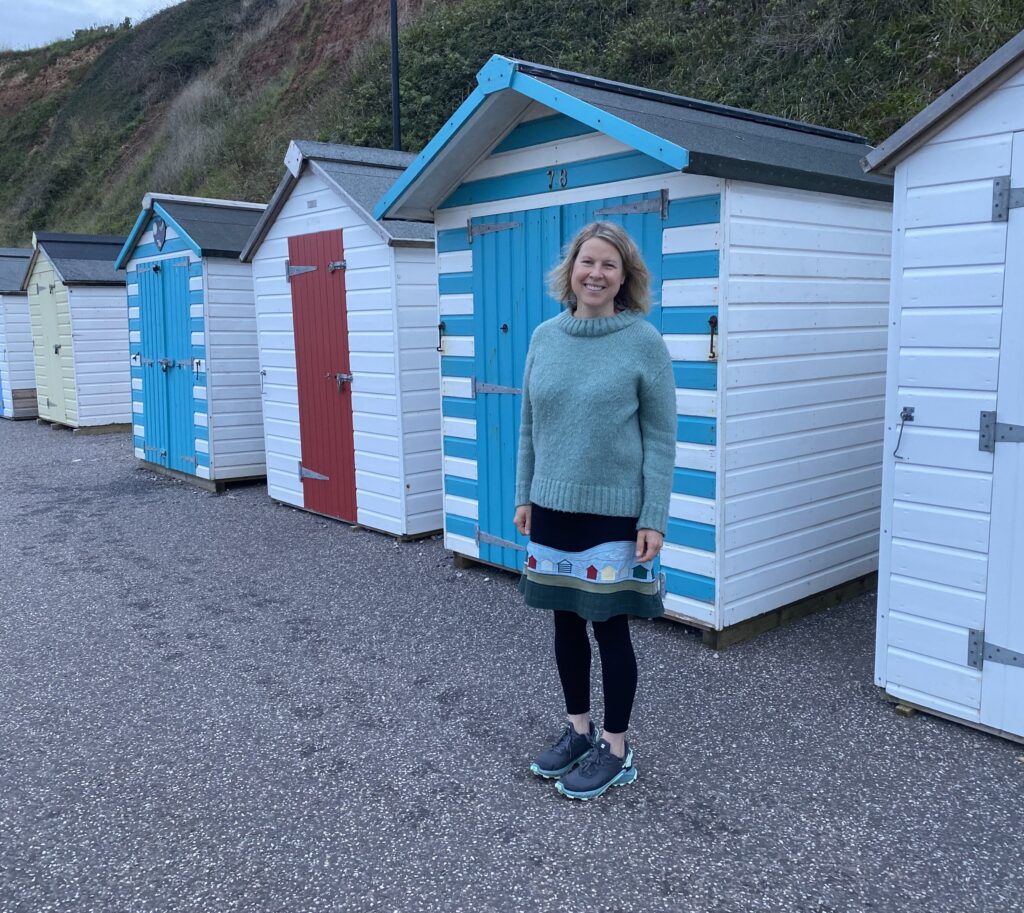
Seaside Sojourn
21st Oct 2024It seems that I always get booked to deliver in-person training at seaside locations. This trend continued last weekend, as I headed off to the coastal village of Seaton, Devon.
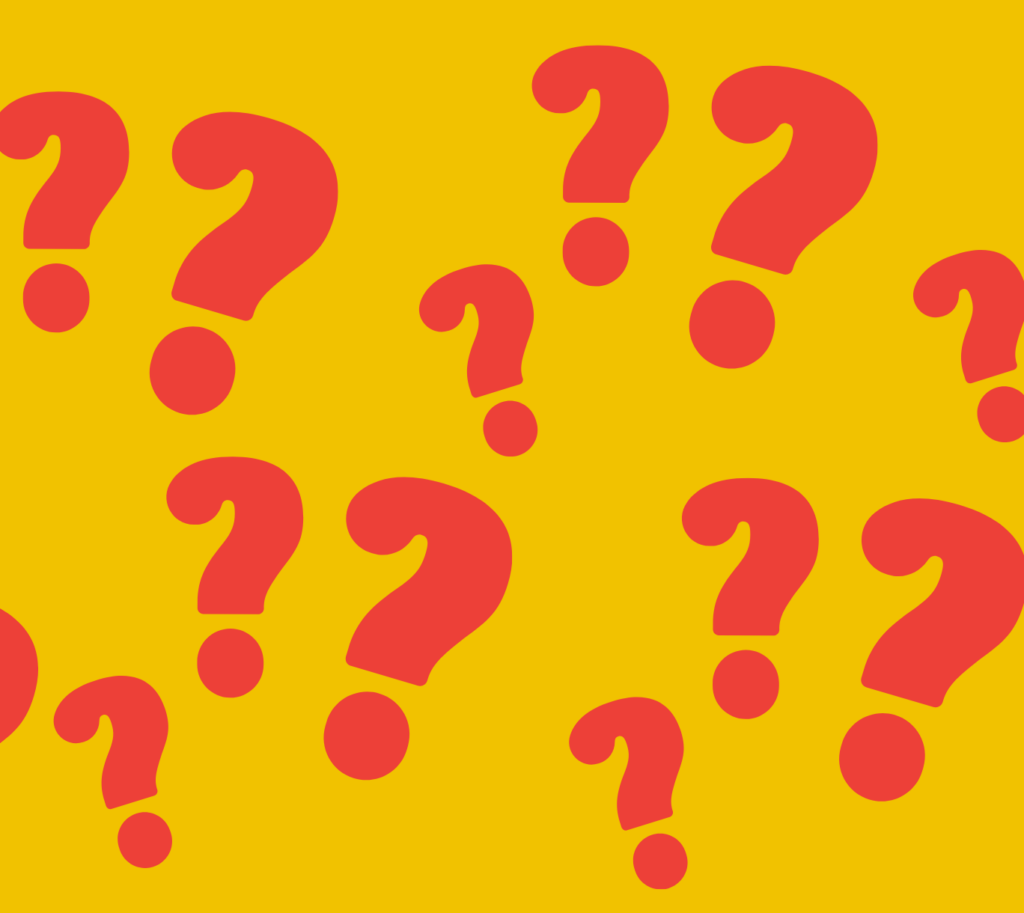
Our Survey Said…
7th Oct 2024Back in February 2024, Church of England kindly sponsored a survey, completed by 330 Messy Church leaders. This is what we...
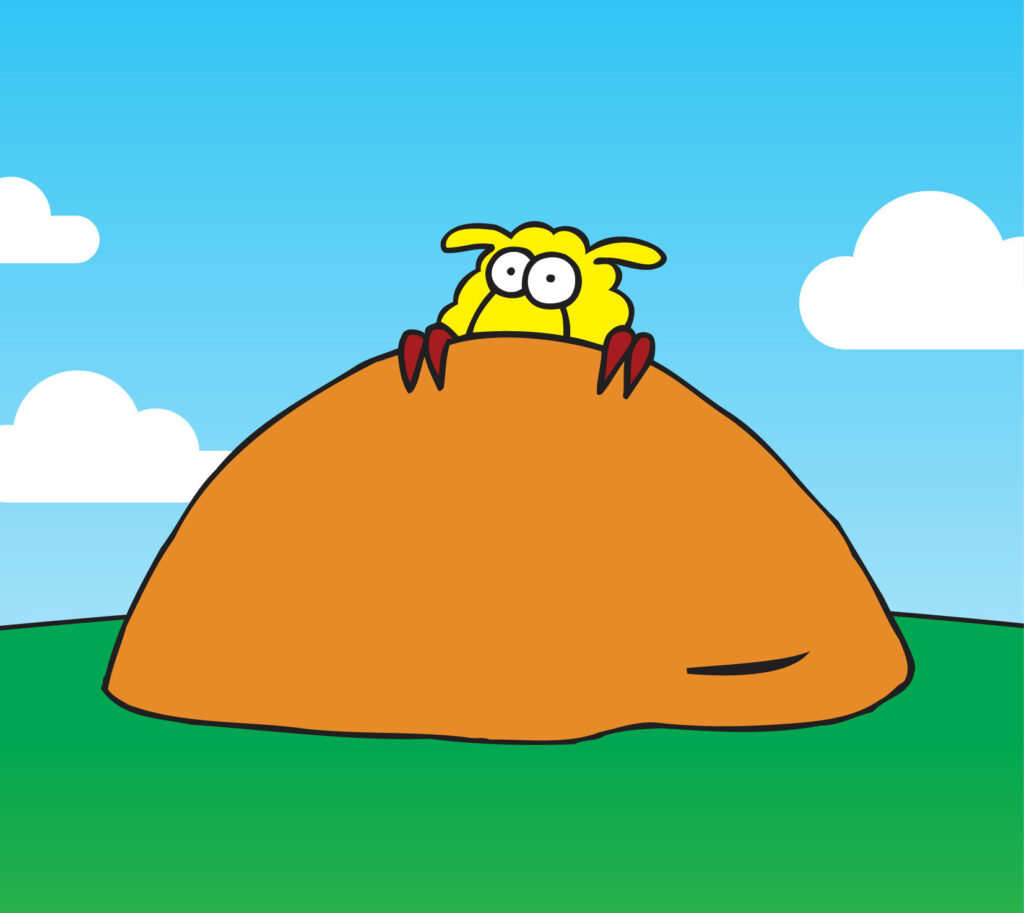
Storytelling from within God’s Story.
10th Sep 2024Hi Messy Friends! My name is Andrew McDonough. I live in Australia, draw sheep and tell stories. It began long long ago w...
